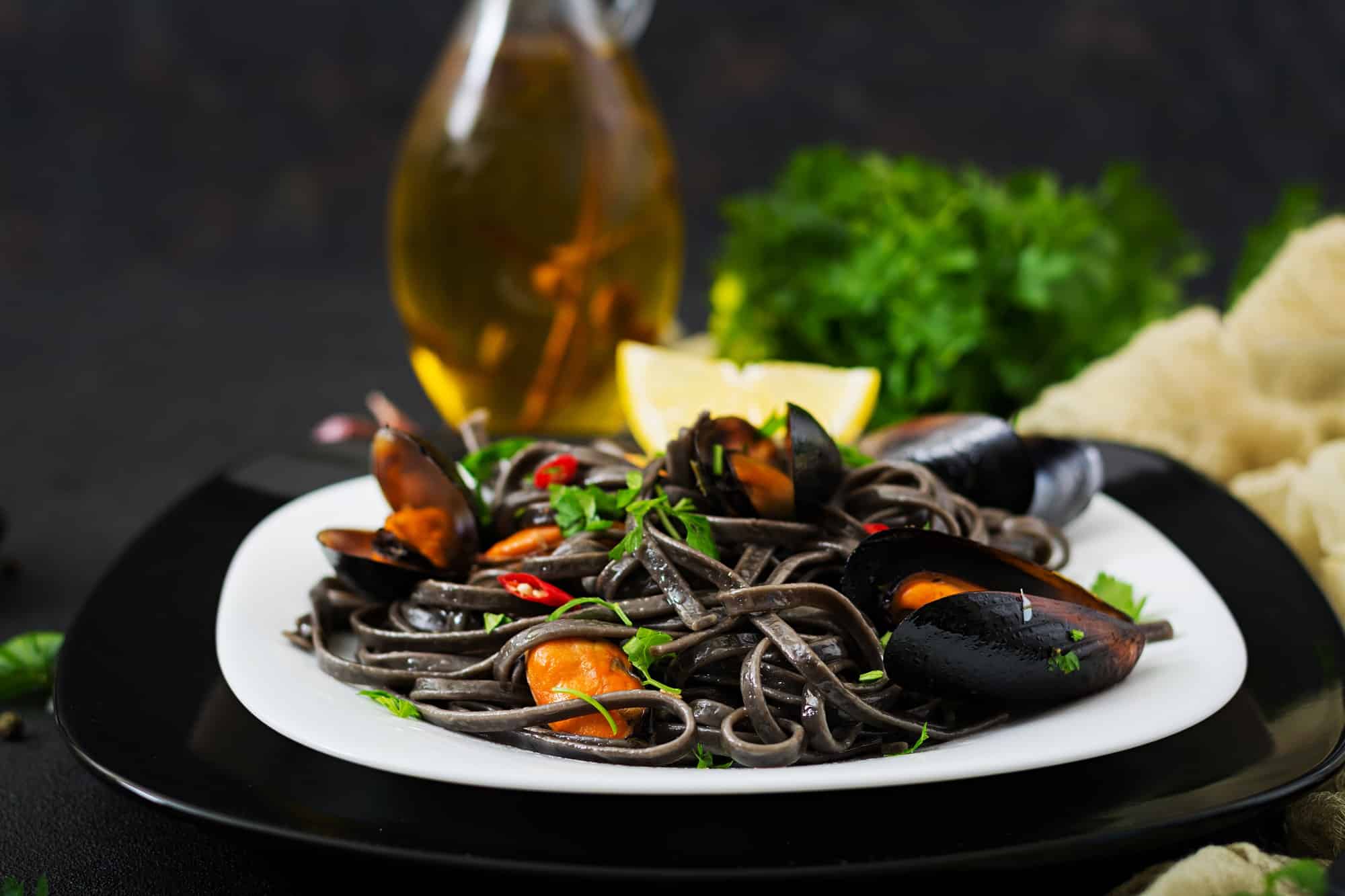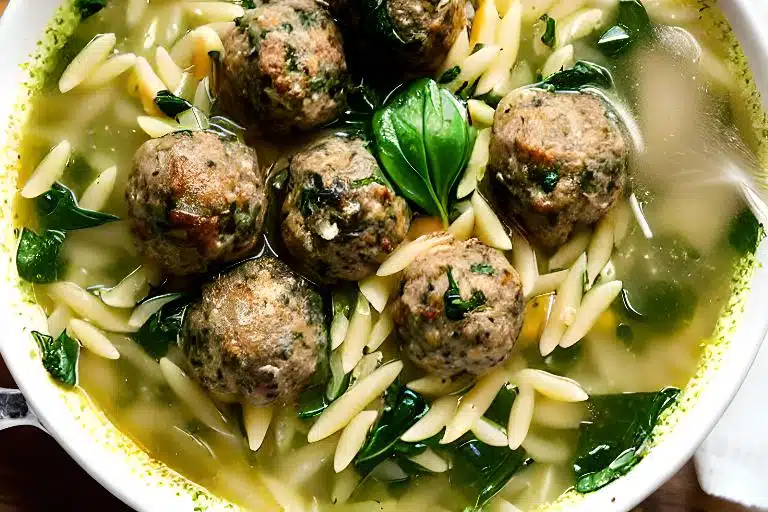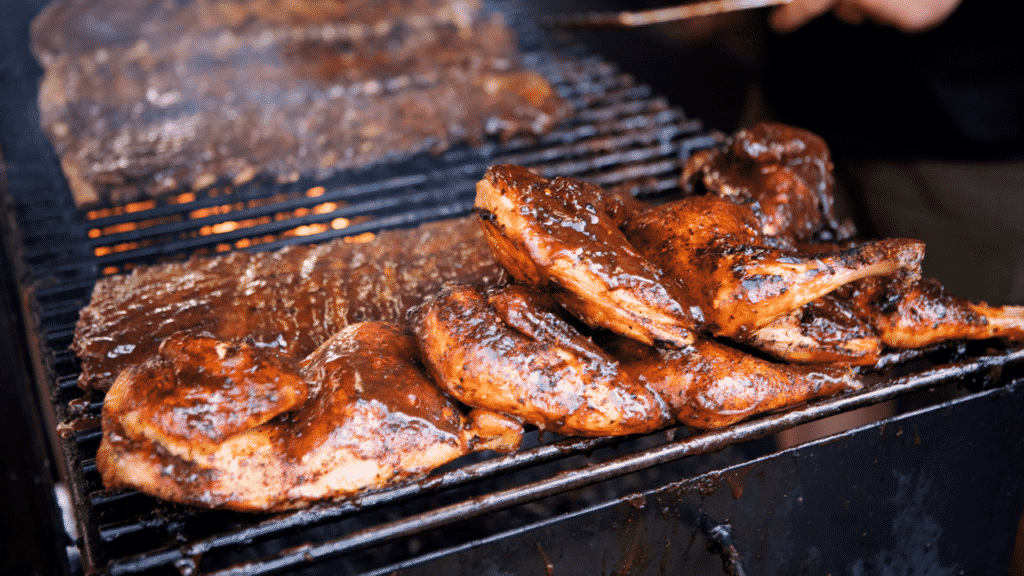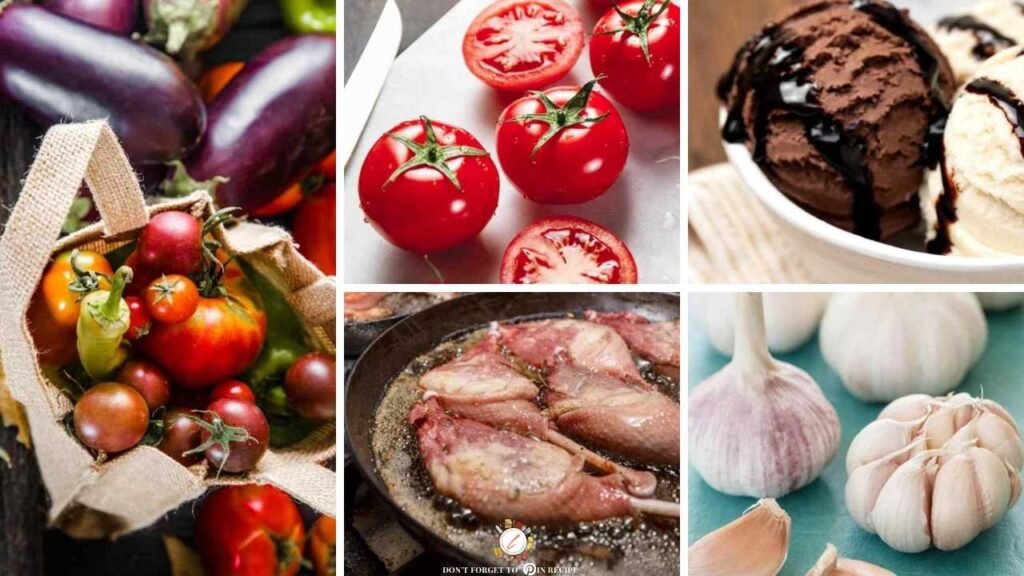The Mediterranean diet is one of the tastiest diets out there. If you search Mediterranean diet recipes you will find millions of recipes. It has long history of being one of the most healthiest diets. The history and tradition of the Mediterranean diet come from the historic eating and social traditions of the southern regions around Italy, Greece, Turkey and Spain.

The Mediterranean diet in a larger sense is really not even a “diet” it can be considered more of a way of life. For thousands of years people living along the Mediterranean coast have indulged in a high-fiber diet of fruits and vegetables, including quality fats and proteins in moderation. If you have a side by side of a traditional food pyramid and a mediterranean diet food pyramid they would look very similar.
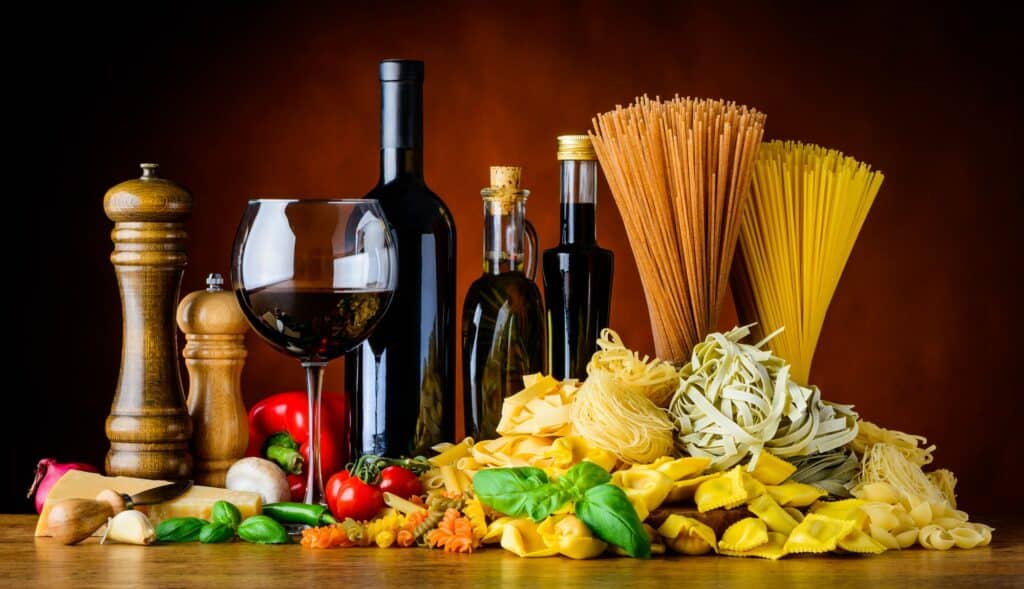
The delicious foods you can eat a Mediterranean diet food list:
- You can eat: Vegetables, fruits, nuts, seeds, legumes, potatoes, whole grains, breads, herbs, spices, fish, seafood and extra virgin olive oil.
- Things to eat in moderation: Poultry, eggs, cheese and yogurt.
- What to eat rarely: Red meat.
- Things not to eat: Sugar-sweetened beverages, added sugars, processed meat, refined grains, refined oils and other highly processed foods.
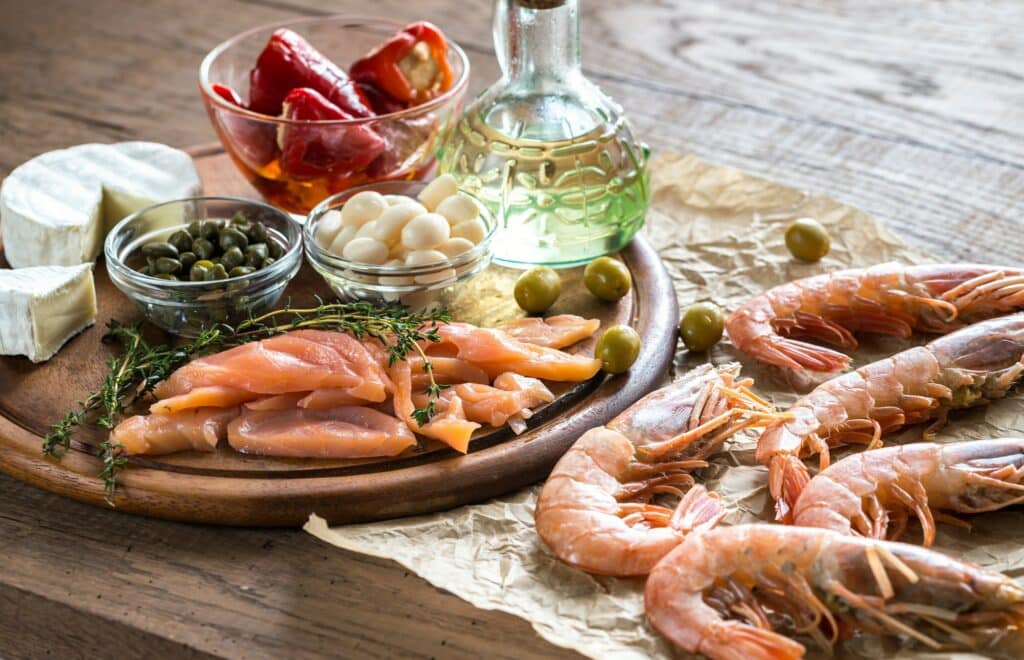
Foods you should not put on your Mediterranean diet food list:
- Added sugar: Soda, candies, ice cream, table sugar and many others.
- Refined grains: White bread, pasta made with refined wheat, etc.
- Trans fats: Found in margarine and various processed foods.
- Refined oils: Soybean oil, canola oil, cottonseed oil and others.
- Processed meat: Processed sausages, hot dogs, etc.
- Highly processed foods: Anything labeled “low-fat” or “diet” or which looks like it was made in a factory.
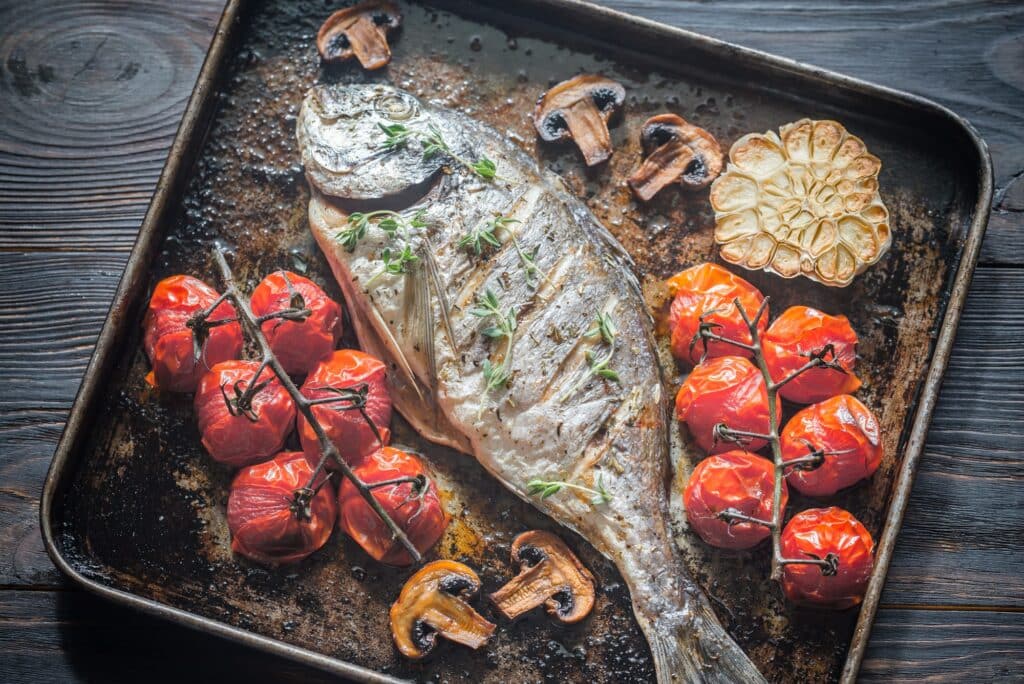
Tips to help you keep on the Mediterranean Diet
- Make sure to use Olive oil exclusively:
If you’ve been cooking with anything other than olive oil stop, make the switch to extra-virgin olive oil. Olive oil is rich in monounsaturated fatty acids which may improve HDL cholesterol, the “good” type of cholesterol. Use olive oil in homemade salad dressings and vinaigrette’s. Instead of using better change over to olive oil, drizzle it over your mashed potatoes, pasta, or anything you might consider using butter for.
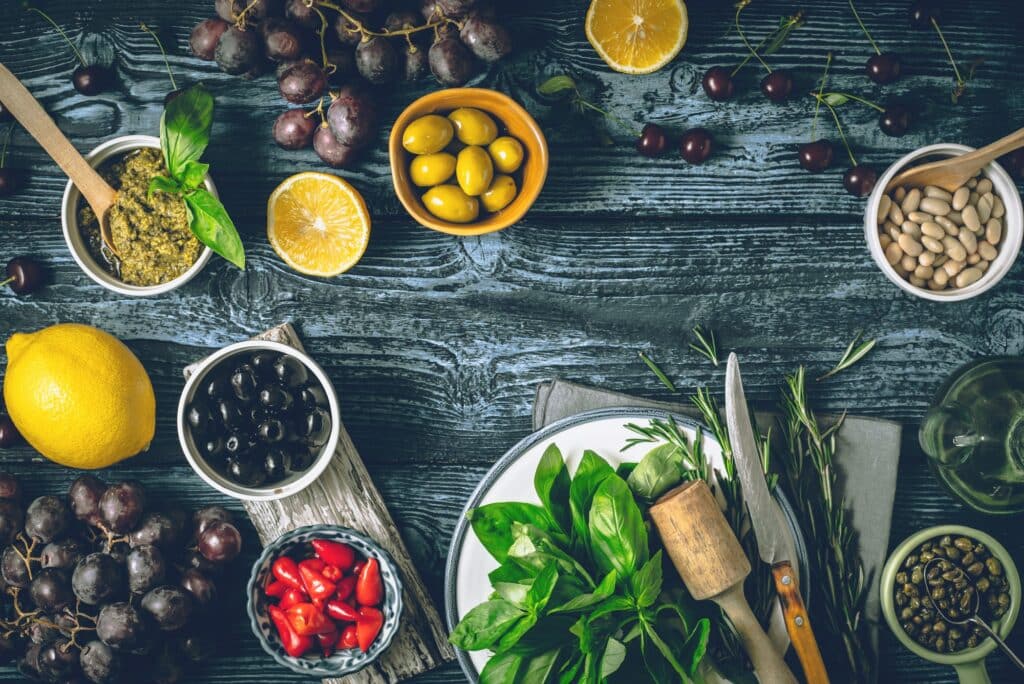
- Eat More Fish
Featured Recipe: Seared Salmon over Farro
The go-to protein in the Mediterranean diet is fish. In particular, this diet emphasizes fatty fish like salmon. Fish that are rich in heart- and brain-healthy omega-3 fatty acids are a staple in the Mediterranean diet.
- Eat as many Veggies as possible
Featured Recipe: Spiced Chickpeas & Couscous Recipe with Turkish salad
A good way to add veggies to your diet is during snack time. Crunching on carrots or throwing a handful of spinach into a smoothie is a great way to add vegetable to your life. Aim for at least two servings per day but more is better.
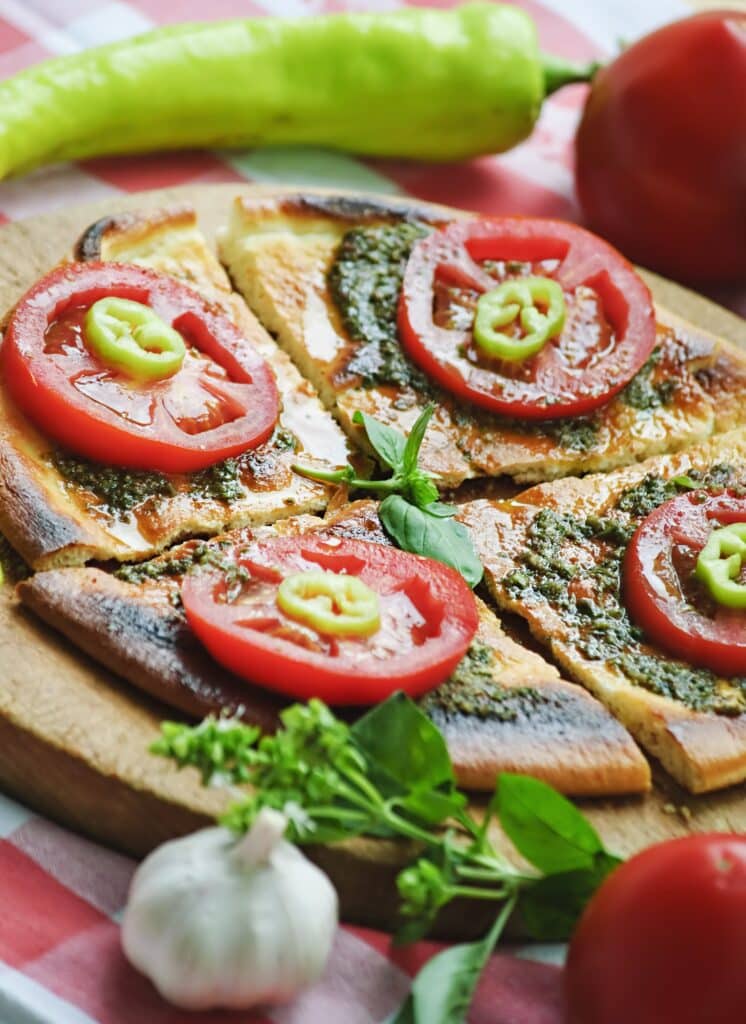
- There is nothing better than Whole Grains
Featured Recipe: Red Bean Indian Curry with Gluten-Free Grains Pilaf
Experiment with “real” whole grains that are still in their “whole” form and haven’t been refined. Quinoa is a great whole grain and makes a great side dish for weeknight meals. Barley is full of fiber and it’s filling: pair it with mushrooms and shredded chicken for a steamy, satisfying soup. A hot bowl of oatmeal is a great winter breakfast.
- No need to eat so fast Savor Every Bite
Featured Recipe: Lemon Herb Chicken with Garlicky Yogurt
Living the Mediterranean lifestyle is all about taking your time. Instead of scarfing your meal slow down and sit down at the table with your family and friends and savor what you’re eating. Not only will you enjoy your food you will also enjoy the company, eating slowly allows you to tune in to your body’s hunger and fullness signals.


